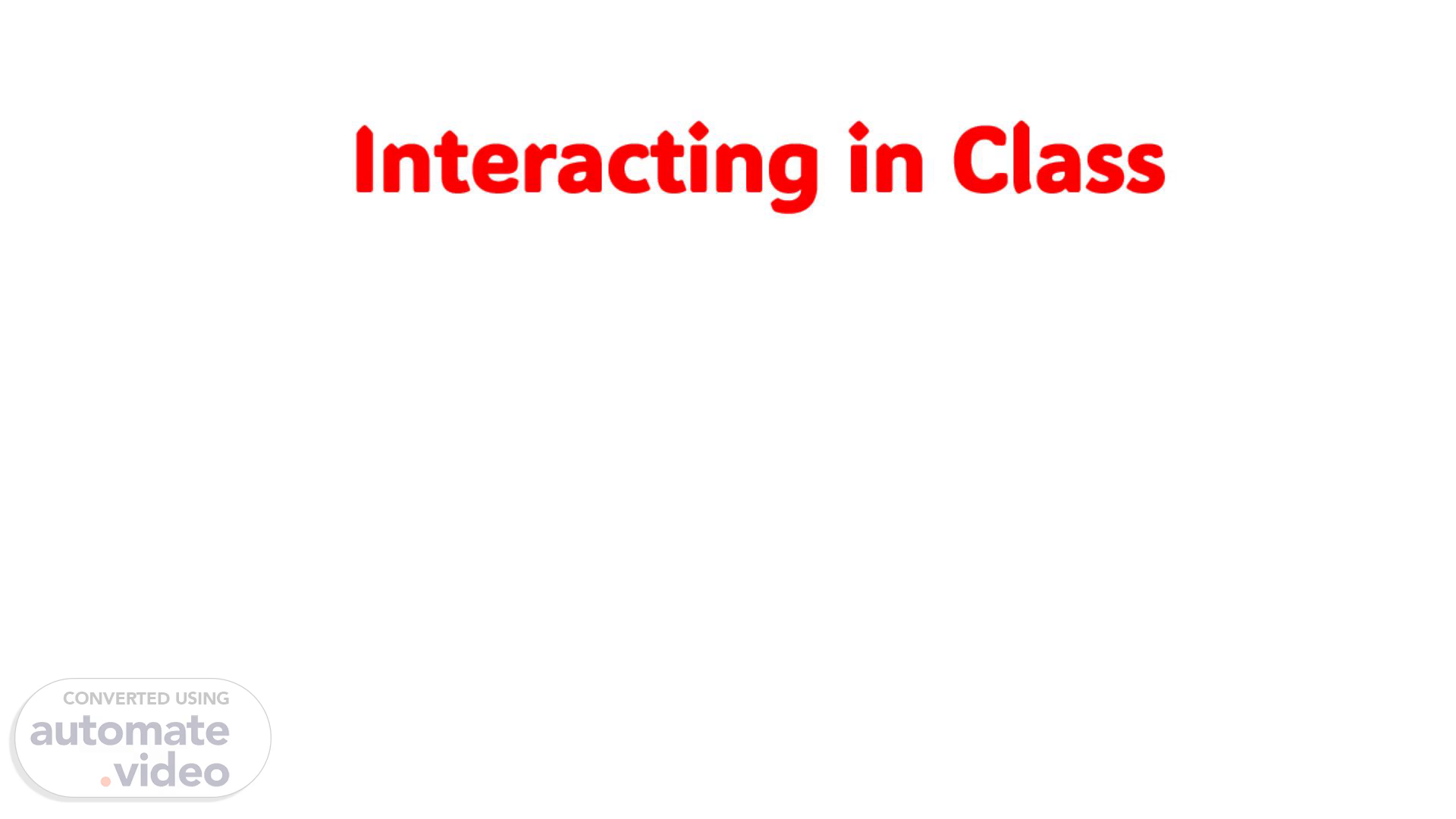Scene 1 (0s)
[Audio] Good morning/afternoon everyone! Today, we'll be discussing how we feel in different situations, specifically how we feel in different situations such as listening to a lecture, working in a group, working with a partner, and giving a presentation. We'll also be discussing the advantages and disadvantages of each situation, as well as what activities we enjoy the most and least. Additionally, we'll be covering how to organize small group discussions, including roles and duties of group members. Let's get started!.
Scene 2 (29s)
[Audio] Today, we will focus on the importance of interacting in class. Listening to a lecture and working in a group are two key areas to focus on. When listening to a lecture, it is crucial to stay focused and engaged. This means taking notes, asking questions, and actively participating in class discussions. By doing so, you will understand the material better and retain it for future use. Working in a group is also important. Collaborating with your peers allows you to share ideas, learn from each other, and develop critical thinking skills. This will not only help you succeed in class, but also in your future career. In summary, interacting in class is essential for your academic and professional success. By actively listening and working in groups, you will understand the material better, develop important skills, and prepare for your future..
Scene 3 (1m 19s)
[Audio] We will discuss how to organize small group discussions in Higher Education. One of the most important aspects of a small group discussion is the roles that each member takes on. There are several different roles that can be assigned to group members. Some of the roles include the facilitator, the recorder, and the timekeeper. The facilitator is responsible for leading the discussion and ensuring that all members have a chance to speak. The recorder is responsible for taking notes and recording any important information that is discussed. The timekeeper is responsible for keeping track of the time and making sure that the discussion stays on track..
Scene 4 (1m 55s)
[Audio] We will ensure participation, keep discussion on the subject, monitor time, and foster productive engagement. Our goal is to facilitate learning and encourage participation..
Scene 5 (2m 6s)
Role 2: Summarizer Explains the situation or problem Makes sure everyone understand the situation Role 3: Reader Reads aloud the instructions, situations, questions Role 4: Reporter Reports the group’s results/ ideas to the class Role 5: Observer (when necessary) Observes the group/ individuals Fills out observation form.
Scene 6 (2m 23s)
[Audio] Informative and useful presentation. Use of principles and techniques..
